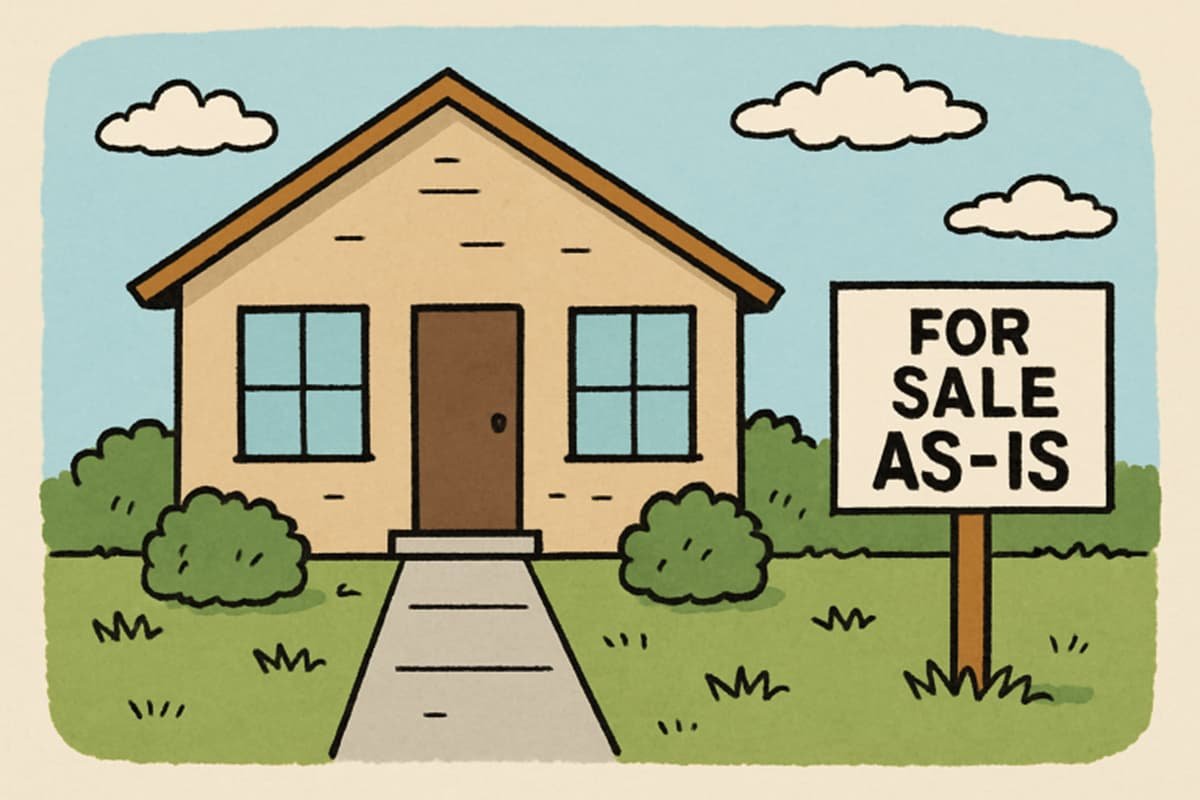Key Takeaways
- Selling as-is attracts faster offers and minimizes seller effort, but may come with lower offers.
- Preparing your home, even minimally, increases appeal and potential sale price.
- Accurate pricing and targeted marketing are critical for a competitive cash deal.
- Legal disclosures remain a must to avoid complications after selling.
Table of Contents
- Understanding the As-Is Home Sale Process
- Benefits of Selling Your Home As-Is
- Preparing Your Home for an As-Is Sale
- Setting a Competitive Price
- Marketing Your As-Is Property
- Negotiating with Cash Buyers
- Legal Considerations and Disclosures
- Conclusion
Understanding the As-Is Home Sale Process
When you sell your home “as-is,” you present it in its current state, without making any repairs or upgrades before listing. This can be a lifesaver if you need to close quickly or simply can’t invest further into the property. However, potential buyers typically expect a discount for the risk and effort of taking on any necessary repairs themselves. Homeowners seeking a quick, simple sale can significantly reduce stress by working with reputable buyers like those at https://www.clevelandhousebuyers.com/sell-your-house-fast-in-north-ridgeville-oh/. These buyers offer fast cash and minimal paperwork. It’s crucial to approach as-is sales transparently. Disclose all known issues up front to avoid complications or legal disputes, and be ready to negotiate the home’s actual condition. This approach works best for sellers prioritizing speed and convenience over maximizing price.
Benefits of Selling Your Home As-Is
- Speedy Transactions: Cash home buyers, like those at https://www.clevelandhousebuyers.com/, can often close within days or weeks, sidestepping the delays of mortgage approvals or home inspections.
- Cost Savings: Skipping renovations or repairs preserves your cash, allowing the buyer to handle updates after the purchase.
- Stress Reduction: You don’t have to manage contractors, renovations, or buyer demands, streamlining the moving process considerably.
As-is sales also protect you from the back-and-forth typical of traditional listings, where buyers often request extensive repairs prior to closing.
Preparing Your Home for an As-Is Sale
Even when advertising as-is, simple pre-sale efforts can yield a stronger sale price and improve the experience for everyone involved. According to U.S. News Real Estate, understanding how as-is sales work can help you strategically plan these improvements. Start by decluttering: clear countertops, pack away personal items, and tidy storage areas to help buyers focus on the property rather than its contents.
- Declutter and Clean: Clean rooms, clear floors, and sparkling windows make the entire home feel more inviting.
- Minor Repairs: If budget allows, tackle affordable fix-ups such as patching holes, tightening handles, or replacing light bulbs. Small improvements can have an outsized impact.
- Enhance Curb Appeal: Trim landscaping, sweep driveways, and consider a fresh coat of paint for your front door. First impressions matter, even for as-is buyers.
Setting a Competitive Price
Accurate pricing forms the backbone of a successful as-is sale. Study comparable “as-is” home sales in your local market. Overpricing discourages buyers, while underpricing can lead to unnecessary losses. Strike a balance by reviewing local sale data and considering condition adjustments. Automated online valuation tools or consultations with local agents can also inform your price range.
Marketing Your As-Is Property
Today’s buyers search across multiple platforms—don’t rely on a single listing. Effective as-is marketing highlights your home’s potential for renovation or as a budget-friendly entry into a desirable neighborhood. Use professional photos to capture the property’s best features, and write compelling descriptions that are honest about any significant issues but focus on the positives, such as lot size, neighborhood, or investment potential.
- List your home on real estate portals, social media, and neighborhood forums to extend your reach.
- Feature your property in local real estate groups where investors or cash buyers are likely to search..
Negotiating with Cash Buyers
Cash buyers move quickly, but expect to negotiate a price that matches your home’s condition. Know your absolute minimum price in advance. Being upfront about major repairs, foundation issues, or outdated systems encourages straightforward offers and helps avoid deals falling through in escrow. Building trust during negotiation leads to smoother transactions and less last-minute stress for both parties.
Legal Considerations and Disclosures
Even in an as-is transaction, clear legal disclosures are mandatory. Most states require you to reveal any known material defects. If you’re unsure about your disclosure obligations, consult a real estate attorney before proceeding. Following the letter of disclosure laws prevents headaches and court disputes after the sale, ensuring both parties are fully informed. The Consumer Financial Protection Bureau also provides resources on seller disclosure requirements and best practices. Being transparent with all known issues fosters trust with buyers and can help accelerate the sale, while keeping detailed records of disclosures offers protection in case of later disputes.
Conclusion
Selling your home as-is for cash is an ideal option for those who prioritize speed, simplicity, and financial certainty. By presenting your property transparently, making minimal yet strategic improvements, leveraging multi-channel marketing, and adhering to all legal requirements, you position yourself for a quick—and surprisingly successful—sale.
Also Read-Why Hair Shows Are Turning Into Must-Attend Tech and B2B Innovation Events

